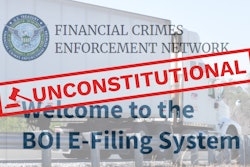As the clock ticks down on the Biden administration and its Environmental Protection Agency before President-elect Trump’s inauguration next month, EPA on Wednesday approved two Clean Air Act waivers for the California Air Resources Board -- one of which allows California to implement its “Omnibus” Low-NOx Regulation for heavy-duty trucks, which CARB adopted back in 2020.
EPA also approved a waiver for CARB’s Advanced Clean Cars II (ACC II) regulations for light-duty vehicles.
“California has longstanding authority to request waivers from EPA to protect its residents from dangerous air pollution coming from mobile sources like cars and trucks,” said EPA Administrator Michael S. Regan. “Today’s actions follow through on EPA’s commitment to partner with states to reduce emissions and act on the threat of climate change.”
The Low-NOx Regulation is not to be confused with the Advanced Clean Fleets (ACF) rule, which CARB has also applied for a waiver to enforce. ACF would require any new truck being registered to operate in any California port to be a zero-emissions vehicle (ZEV). Additionally, the ACF would set a 2036 deadline to end the manufacture and sale of medium- and heavy-duty diesel-powered trucks.
The Omnibus Low-NOx reg slashes NOx and particulate matter (PM) emissions standards and included new requirements for test procedures, regulatory useful life, and emissions warranties. The rule built upon the EPA's own heavy-duty NOx regulation finalized in 2022 for model year 2027 and beyond. CARB's rule, when approved in 2020, was set to take effect with model year 2024.

While EPA has not yet granted a waiver for ACF, given Wednesday’s announcement, it stands to reason that the Biden EPA may look to push it through before the Trump administration takes over.
The trucking industry quickly lambasted EPA the most-recent moves. The Owner-Operator Independent Drivers Association decried the agency’s decision to not work with industry to find a more workable solution.
“The Omnibus Low-NOx waiver for California calls into question the policymaking process under the Biden administration's EPA,” said OOIDA President Todd Spencer. “Purposefully injecting uncertainty into a $588 billion American industry is bad for our economy and makes no meaningful progress towards purported environmental goals. EPA's credibility outside of radical environmental circles would have been better served by working with regulated industries rather than ramming through last-minute special interest favors.”
Likewise, the American Trucking Associations blasted the waiver for imposing “unworkable state-by-state standards on the trucking industry that compromise the federal NOx standard adopted just two years ago.”
ATA President and CEO Chris Spear called the waiver “ill-advised,” adding that it “will be short-lived.”
“California’s mandates have already created significant truck shortages and price increases, needlessly limiting truck sales and purchases in California,” Spear added. “These policies are divorced from reality, disregard the operational needs of the trucking industry, and will have adverse consequences for consumers in the price they pay for everyday goods.”
Both ATA and OOIDA said they look forward to working with the Trump administration to find more common ground in environmental policies.
“We look forward to the incoming administration and soon-to-be EPA Administrator Lee Zeldin reversing these misguided policies and restoring common sense to the nation’s environmental policy,” Spear said.










